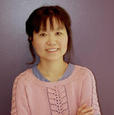The fundamental principle of acupuncture revolves around the idea that a harmonious flow of vital energy, known as "qi," sustains overall health. When disruptions occur in this energy flow, it is believed to lead to imbalances in the body's systems, potentially affecting reproductive health as well. Acupuncture involves the precise insertion of thin needles into specific points along the body's meridians, with the aim of restoring equilibrium and promoting the body's natural healing mechanisms.
Inserting needles in the affected area enhances blood circulation to the reproductive organs, regulates hormonal levels, reduces inflammation, and alleviates stress – all of which can play pivotal roles in fertility health. These effects are believed to be particularly relevant for individuals undergoing assisted reproductive techniques such as in vitro fertilization (IVF) or intrauterine insemination (IUI).
Acupuncture and Infertility are often discussed together because some people believe that acupuncture can have a positive impact on infertility. While research in this area is ongoing, here are some key points to consider:
Traditional Chinese medicine suggests that acupuncture can restore the balance of energy in the body, which might positively affect reproductive health. It's thought to enhance blood circulation to the ovaries, uterus, hypothalamus, and pituitary gland, regulate hormone levels, and reduce stress, all of which can play a role in combating infertility.
- Acupuncture not only can help women to produce healthy eggs but also help men to optimize their testosterone and improve their sperm quality and motility.
- Responses to acupuncture can vary widely among individuals. Some people may find it very beneficial, while others might not experience significant changes. Factors such as the underlying cause of infertility, overall health, and individual differences can influence the response to acupuncture. Women who eat healthy diets, exercise regularly, and sleep well, usually have the best results because their blood circulation and nerve function are healthier.
- If you're dealing with infertility and are interested in trying acupuncture, it's crucial to consult your healthcare provider. They can help you understand the potential benefits based on your specific situation and guide you on what is the frequency of acupuncture treatment and if you need herbs to speed up the whole process.
- Boston and Boca Acupuncture clinics have been working together with infertility clinics in Greater Boston and South Florida areas to help women to spend less money and time-fighting infertility. Please go to www.bostonchineseacupuncture.org to get the information on how you can use acupressure to restore your hormone balance.
In summary, while almost all infertility clinics combine IVF or IUI with acupuncture treatment, it is very expensive to have IVF or IUI treatment; it would be better if a woman has only one IVF or IUI to achieve the healthy pregnancy than trying more than 3 to 4 times. Furthermore, the stress level is so high with all the hormone injections, that acupuncture can help women maintain better health and reduce the chances of miscarriage when they combine acupuncture with IVF or IUI. If you're considering acupuncture as part of your fertility journey, consult with your healthcare team and seek out a qualified acupuncturist near you who specializes in fertility-related treatments. Keep in mind that individual responses can vary, and the best approach will be based on your unique constitution.
Li Zheng, a licensed acupuncturist and herbalist, brings 26+ years of clinical expertise to her practice. She specializes in various health concerns, including infertility, insomnia, neuropathy, acne, glaucoma, and autoimmune diseases. Dr. Li Zheng accumulated tremendous literature about herbs for infertility and acid reflux, which have been proven clinically very safe for mothers and babies.

Post new comment
Please Register or Login to post new comment.